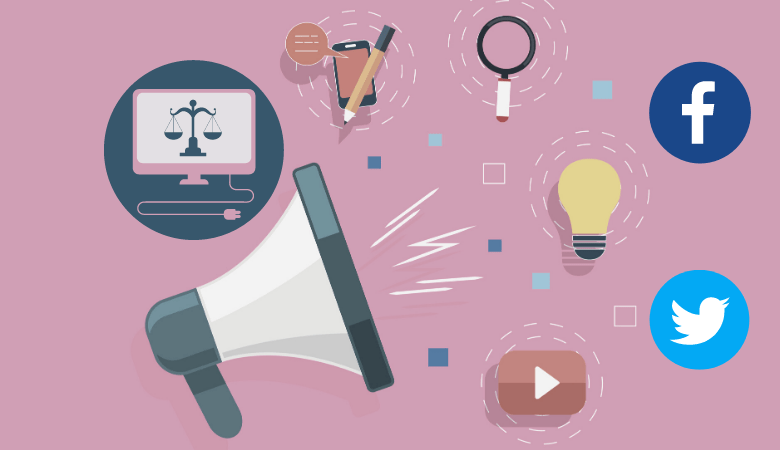A study from the Center of Countering Digital Hate, found that social media platforms failed to act on 95% of coronavirus-related disinformation reported to them.
…
Over the past few weeks, social media companies have been in the hot seat regarding their lack of action against limiting the amount of fake news and misinformation on their platforms. Especially, the information regarding COVID-19 and the vaccine. Even President Biden remarked on social media platforms- stating Facebook and other companies were “killing people” by serving as platforms for misinformation about the Covid-19 vaccine. Later, Biden clarified his earlier statements by saying that he wasn’t accusing Facebook of killing people, but that he meant he wanted the companies to do something about the misinformation, the outrageous information about the vaccine.”
A few weeks later, Senator, Amy Klobuchar introduced the Health Misinformation Act, which would ultimately create an exemption to Section 230 of the Communication Decency Act. Section 230 has always shielded social media companies from being liable for almost any of the content that is posted on their platform. However, under the Health Misinformation Act, social media companies would be liable for the spread of health-related misinformation. Further, the bill would only apply to social media platforms that use an algorithm that promotes health misinformation- which most social media platforms use algorithms and would only apply to health misinformation during a health crisis. Additionally, if this bill were to pass, then the Department of Health and Human Services would be authorized to define “health misinformation.” Finally, the proposed bill would only apply during a national public health crisis, such as COVID-19. Therefore, this exemption would not apply during “normal” times, when there is no public health crisis.
Senator Amy Klobuchar and some of her peers believe the time has come to create an exemption to Section 230 because “for far too long, online platforms have not done enough to protect the health of Americans.” Further, Klobuchar believes that the misinformation spread about COVID-19 the vaccine proves to the world that the social media companies have no desire to do anything about this because the misinformation gives the social media platform more activity and because the companies cannot be liable for this misinformation because of Section 230.
Instead, these social media companies, use this misinformation to their advantage to get more activity on their platform by creating features within to incentivizing their users to share the misinformation and to get likes, comments, and other engagements, which rewards engagement rather than accuracy.” Furthermore, a study conducted by MIT found that false news stories are 70% more likely to be retweeted than true stories. Therefore, social media platforms, have no reason to limit this information because of the activity they receive for the misinformation. Especially, when this misinformation benefits the social media platform.
What are the concerns with the Health Misinformation Act?
How will the Department of Health and Human Services define “health misinformation?” it seems very difficult to define such a narrow topic, that the majority will agree upon. Also, I believe there will be a huge amount of criticism from the social media companies about this act. For instance, I can imagine the social media companies arguing how will they be able to implement the definition of “health misinformation” to their algorithm? Such as, what if the information on the health crisis changes? Will the social media company have to constantly change the algorithms with the constant change of health information? For example, at the beginning of the pandemic the information of the importance of the mask changed; from mask not being necessary to masking being crucial to ensure the health and safety of yourself and others.
Will the Bill Pass?
With that being said, I do like the concept of the Health Misinformation Act, because it’s wanting to hold the social media companies accountable for their inaction while trying to protect the public so they receive accurate health-related information. However, I do not believe this bill will pass because of a few issues; first, it may violate the First Amendment, for people’s freedom of speech. Second, while it isn’t right; it is not illegal for individuals to post their opinion or misinformation on social media. Therefore, the bill might not pass because it may violate the First Amendment. Finally, as stated earlier how would social media companies implement these new policies and the change of “health misinformation” and how would the federal agencies regulate the social media companies?
What should be done?
“These are some of the biggest, richest companies in the world and they must do more to prevent the spread of deadly vaccine misinformation.”
…
I believe we need to create more regulations and create more exemptions to Section 230. Especially, because Section 230 was created in 1996, our world looks and operates very differently than it did in 1996. Social media is an essential part of our business and cultural world.
Overall, I believe there need to be more regulations put into place to oversee social media companies. We need to create transparency with these companies, so the world can understand what is going on behind the closed doors of these companies. Transparency will allow for agencies to fully understand the algorithms and make for proper regulations.
To conclude, social media companies are a monopoly- even though there are a lot of them, there is only a handful that holds most of the popularity and power. With that being said, all major businesses and monopolies must follow strict regulations from the government. Yet, social media companies seem exempt from these types of strict regulations.
While there has been a push over the past few years to repeal or make changes to Section 230, do you think this bill can pass? If not, what can be done to create more regulations?


